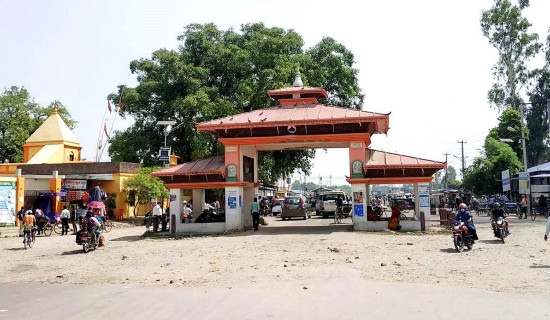- Thursday, 26 February 2026
Civic Initiatives For Charitable Services
The Constitution of Nepal, 2015 has remarkably important provisions regarding the economic, social and cultural rights of the citizens. These rights include right to food, shelter, health, education, safe and clean environment and many others that are fundamental to survival, growth and development of the people. The aforementioned rights are clearly spelt out in the international covenant on economic, social and cultural rights endorsed by the United Nations in 1969. As these rights have been sanctified as fundamental rights, the state is under an obligation to protect and fulfill these rights. The denial of these rights to the citizens is interpreted as the violation of the citizen’s fundamental rights which can be challenged in the court of law. The Supreme Court has also interpreted the inviolability of these rights and oftentimes passed the directives to the government to his end.
The state obligations towards fulfilling the rights of the citizens guaranteed by the constitution are divided into three sub-categories. These include the obligation to facilitate, the obligation to protect and the obligation to fulfill. When it comes to rights to food and shelter, the state should guarantee and deliver them in real terms. According to international human rights law, shelter, food, housing and other provisions can be said to be adequate if they are available to the people. The availability of these provisions should be ensured in sufficient quantity and quality. They should be accessible for all in need, including persons with special needs. They should also be acceptable in cultural terms and also adaptable as well. Adaptability implies that provisions should improve and progress over time from emergency to transitional support to availability in a permanent manner.
Principles
The principles of humanity neutrality, impartiality and independence are fundamental to humanitarian action and services. Humanitarian action and services have to be focused on marginalised categories of people that may have been left behind in the society or thrown out in the streets. Marginalised categories thrown into streets without any care and protection include women, children, elderly citizens of all ages and situation. Placing the concerns and needs of the people in distress should be at the heart of humanitarian action and services. Needless to say, state is under an obligation as duty bearer to facilitate, provide and fulfill the rights of the citizens, it alone cannot meet the multidimensional challenges towards guaranteeing the economic, social and cultural rights of the needy people. State authority, according to the constitution, is divided into and vested in federal, provincial and local government. Any obligations to be met by the state should involve the federal, provincial and local governments in line with their functional responsibilities assigned in the basic law of land.
All three layers - local, provincial and local - of the government are thus obliged to work towards guaranteeing the provision of food, shelter and medical care and so on. However, state agencies alone cannot meet the multidimensional challenges to fulfill and guarantee the economic social and cultural rights of the needy and destitute people. It also calls for initiatives and resources of the non-state and civic sectors to complement the state to meet its obligations for protecting and fulfilling the rights in including food, shelter and medical care.
In Nepal, humanitarian organisations have sprung into action to serve the people in distress. Lions Club, Rotary Club and Red Cross are at work to deliver humanitarian services to people in need. These are the local chapters of the international association and networks. However, there are very few organisations that have sprouted from the local initiative and efforts.
Civic organisations like Manav Sewa Ashram have been the product of the local initiative dedicated to the service of the humanity. It is recognised as one of prominent organisations, which has carried out a commendable job in humanitarian services. Registered as not for profit entity founded in Hetauda almost more than a decade ago as humanitarian service shelter home, it, according to its statute, is dedicated to making Nepal a street people free country by helping the most vulnerable, impoverished, disabled, and homeless. Physically weak or mentally or psychologically challenged people are forced to live miserable life in the open sky, street pavements and public place. At present, the Ashram has been looking after around 1555 destitute, mentally disturbed and helpless persons. Of the people sheltered at the Ashram’s shelter home, some are underprivileged children and the remaining are helpless adults and elderly people, according to news reports. The Ashram has rescued and rehabilitated high number of helpless people in the short period since its establishment.
Moral values
It has reunited people in vulnerable circumstances with their families including the ones from across the border including Bangladesh. Set up with the humanitarian goal of rescuing and rehabilitating the needy persons in the country, the Ashram has expanded to 23 locations in 19 districts in the country. The remarkable part of the Ashram’s programme has plan to train full-timer humanitarian campaigners as well as volunteers to turn a dream of building Nepal as the nation of humanity into reality, says a report. Similarly, the Ashram also set a plan to initiate a task to produce students with high moral values by running a school. It shows that a local organisation can contribute commendably to deliver humanitarian services but these cannot be substitute to the government obligations. It is necessary that the government bodies concerned should take steps to encourage and support the civic initiatives like Manav Sewa in building a helpless and destitute-free Nepal.
(The author is presently associated with Policy Research Institute (PRI) as a senior research fellow. rijalmukti@gmail.com)
















